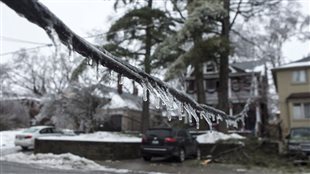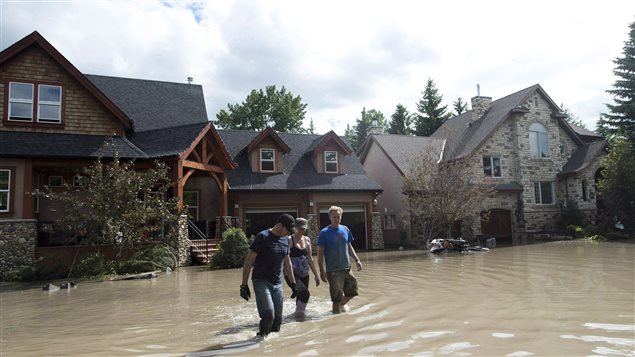The Intact Centre on Climate Adaptation was officially opened today. Based at the University of Waterloo, about 100 kilometres west of Toronto, the centre will focus on research and solutions for Canadian homeowners and businesses in dealing with extreme weather.
Professor Blair Feltmate, of the Faculty of Environment at the University of Waterloo, is the head of the new centre. He says over the last 10 years extreme weather has had a major financial impact on the insurance industry in Canada.
Listen
Intact Financial Corporation, Canada’s largest property insurer, provided $4.25 million (Cdn) in funding for the centre. Feltmate explained that Catastrophic Loss Claims have soared in the last 8 years. They’ve risen to over a billion dollars a year, and in 2013, the year of the major flood in Calgary, Alberta, the total was almost $3.4 billion (Cdn). This, in comparison to the previous 15 to 25 years when the average payouts ranged from $100 million to $500 million (Cdn) per year. “The big culprit in it is water, it’s water in particular flooding basements” said Feltmate.
Many industries are still not ready for extreme weather events according to Felmate. Business leaders in mining, forestry, petroleum and utilities are aware now that climate change and extreme weather events are affecting their bottom line, but adapting to this new reality is a slow process. Feltmate says the centre will convene the leaders of these companies, by sector, to identify the top 5 to 10 challenges facing them, to guarantee business continuity.
‘Between now and 2030-2035 we have to spend, in Canada, between $300 and $350 billion (Cdn) on new electricity infrastructure, that’s with a “b”! That’s for generation, transmission and distribution.”
In an exercise with the Canadian Electricity Association Feltmate says they’ve mapped out the necessary upgrades. ‘Between now and 2030 – 2035 we have to spend, in Canada, between $300 and $350 billion (Cdn) on new electricity infrastructure, that’s with a “b”! That’s for generation, transmission and distribution.”
Professor Feltmate says adaptations, such as building electricity substations two metres above the ground, instead of at ground level as they’ve been installed until now, is one example. The lesson learned in the 2013 Toronto ice storm, was the location of hydro lines. Putting them in front of houses, and not behind in the back yards, as so many of them are now, would provide easier access to restore the electricity in the event of future ice storms.
The ICCA has also created a Home Adaptation Audit. It will be launched in a major Canadian city, to be announced soon. The goal is to advise and demonstrate to Canadians how to protect against flooding. Fourty to fifty reference points, both inside and outside the house will be inspected by a trained technician, in a two-hour session, to identify where and how water can enter the house. The homeowner will be left with 7 or 8 recommendations of low-cost practical changes that can protect the home.







For reasons beyond our control, and for an undetermined period of time, our comment section is now closed. However, our social networks remain open to your contributions.